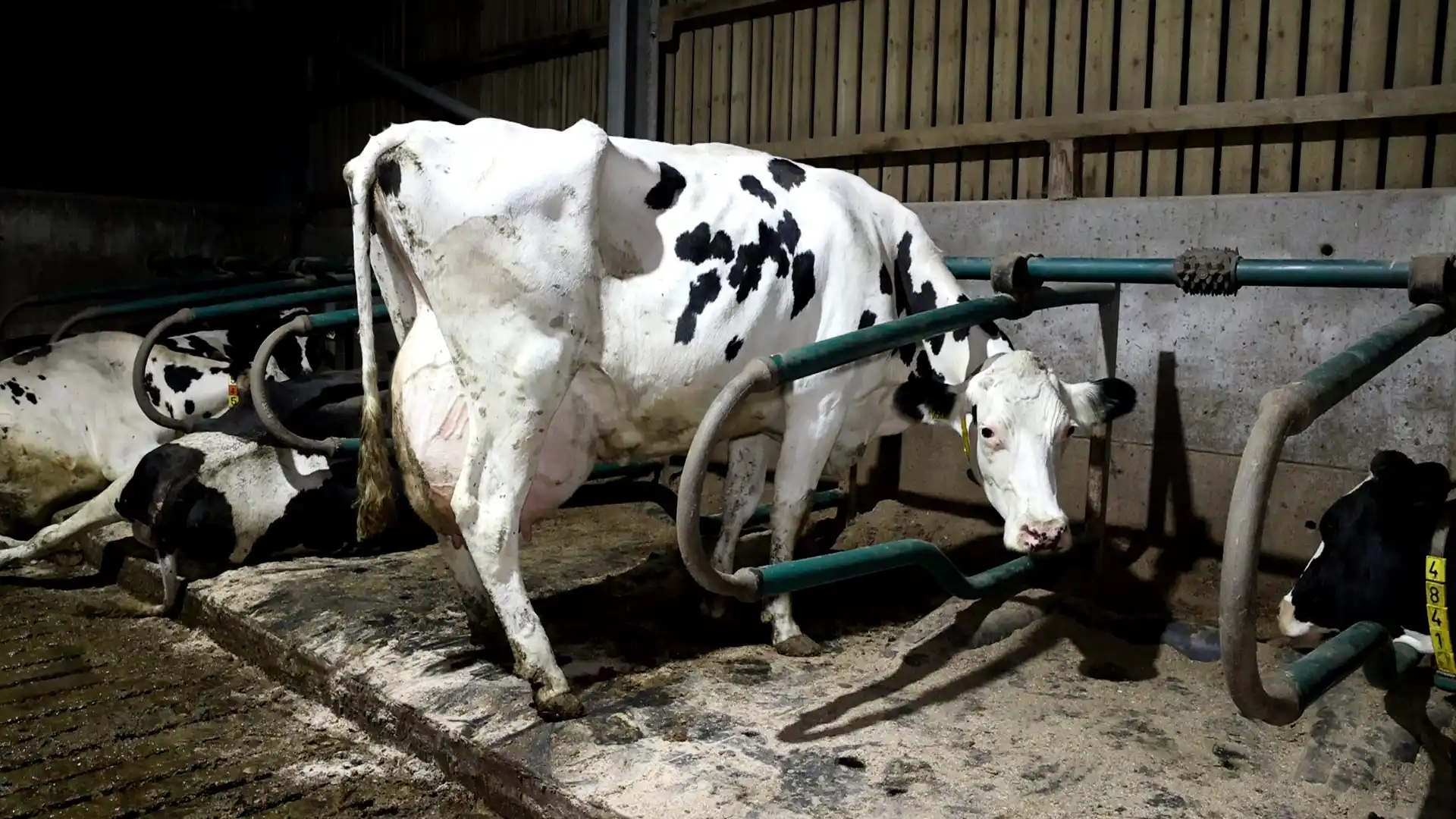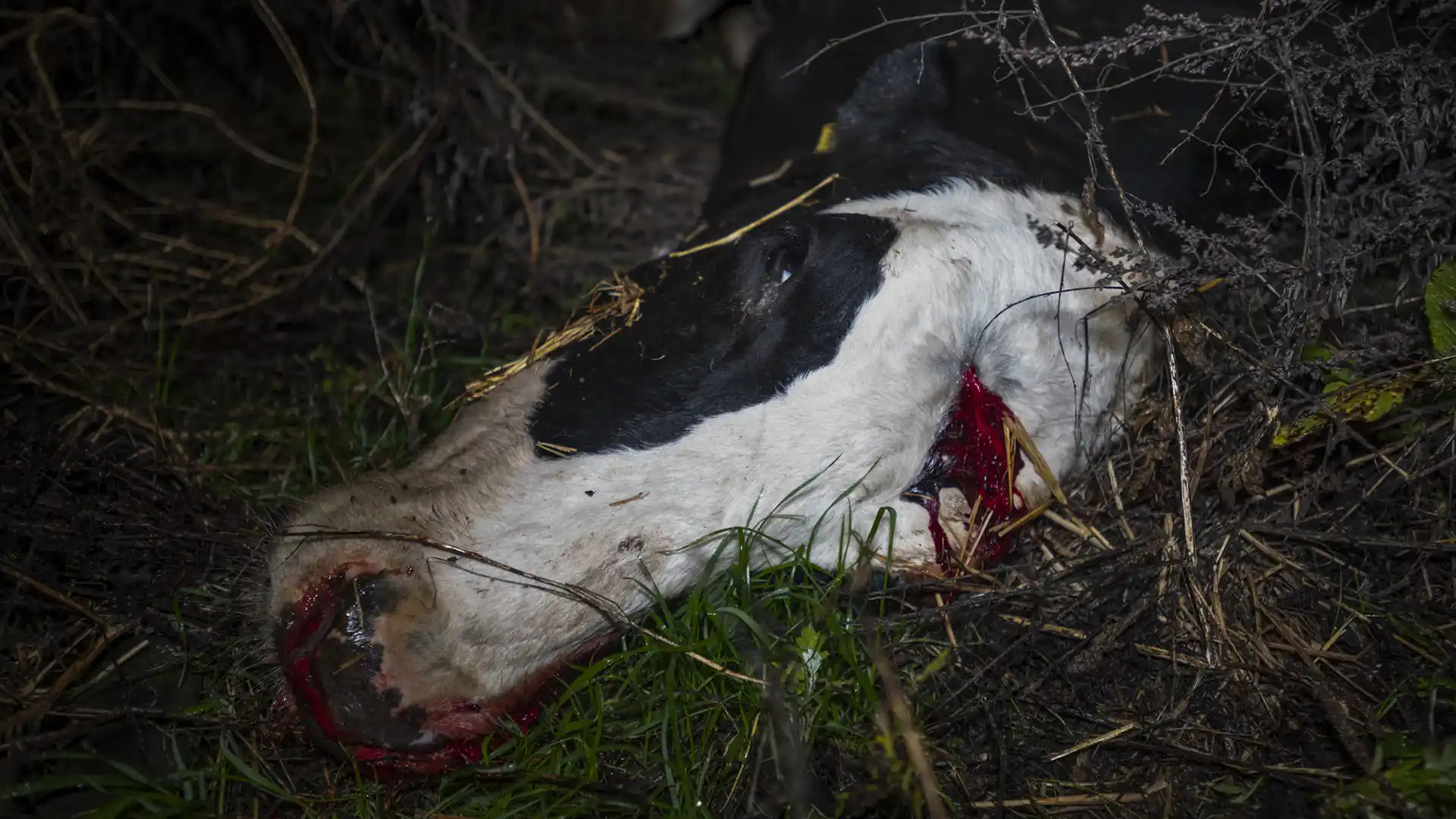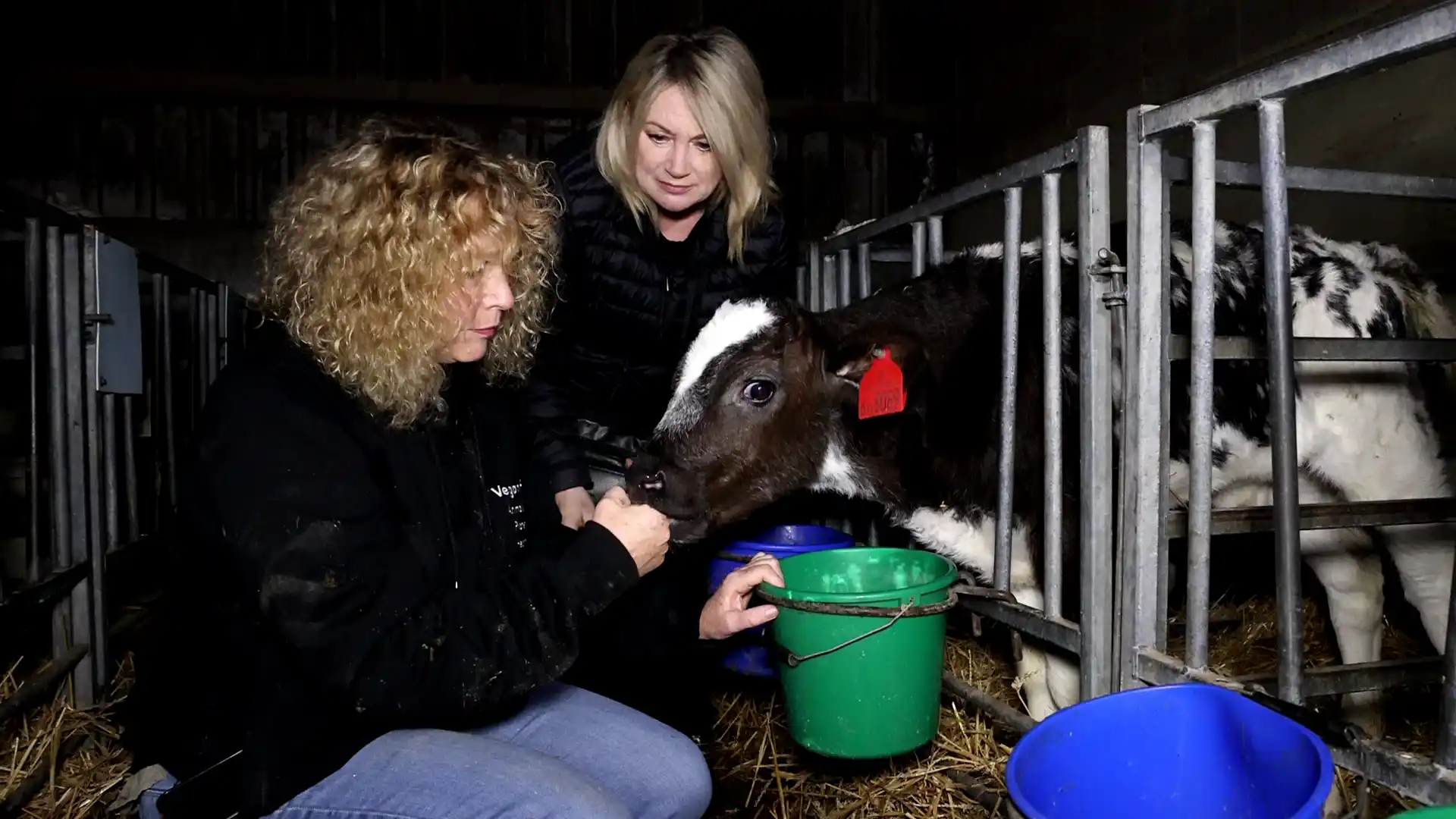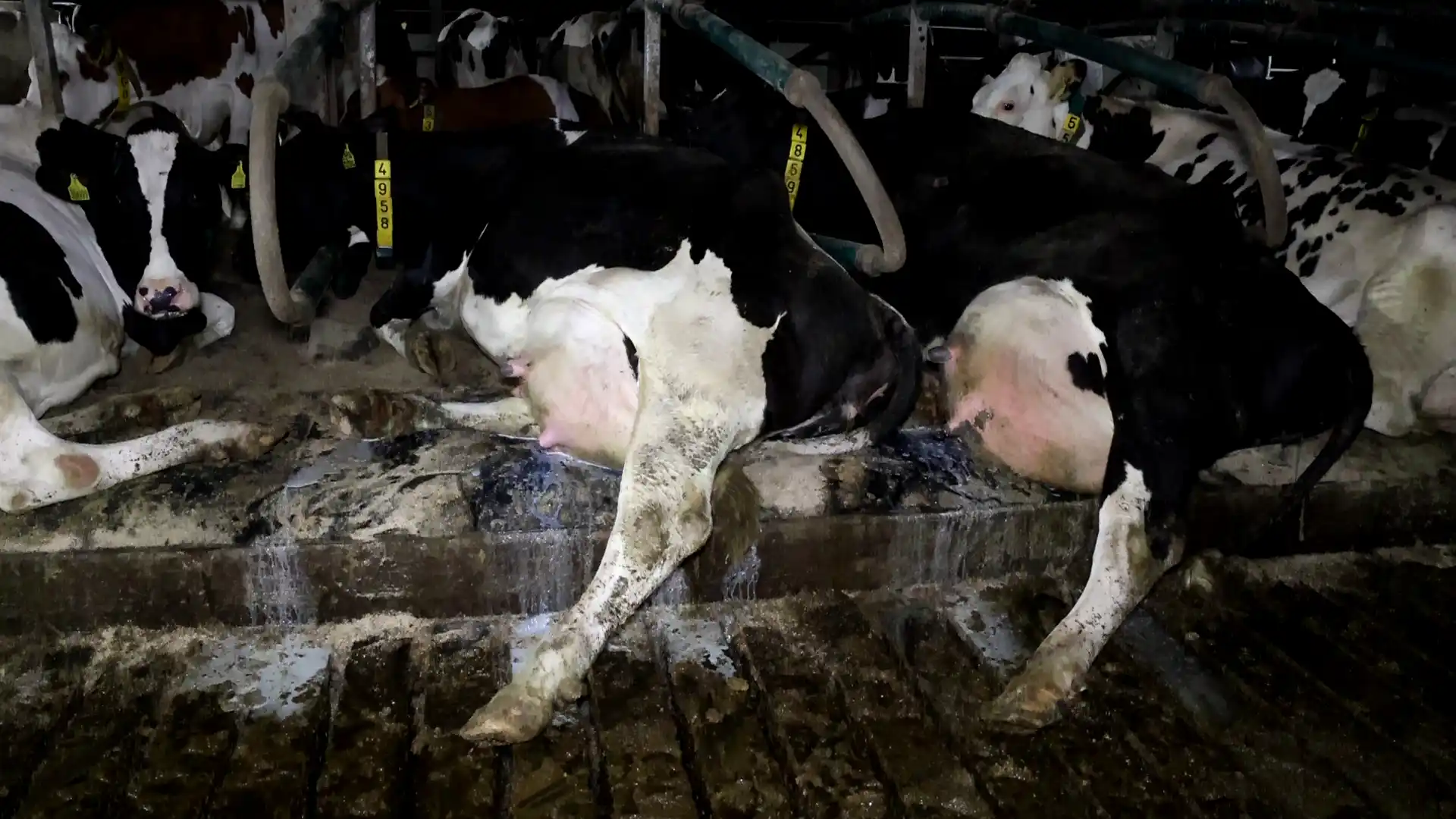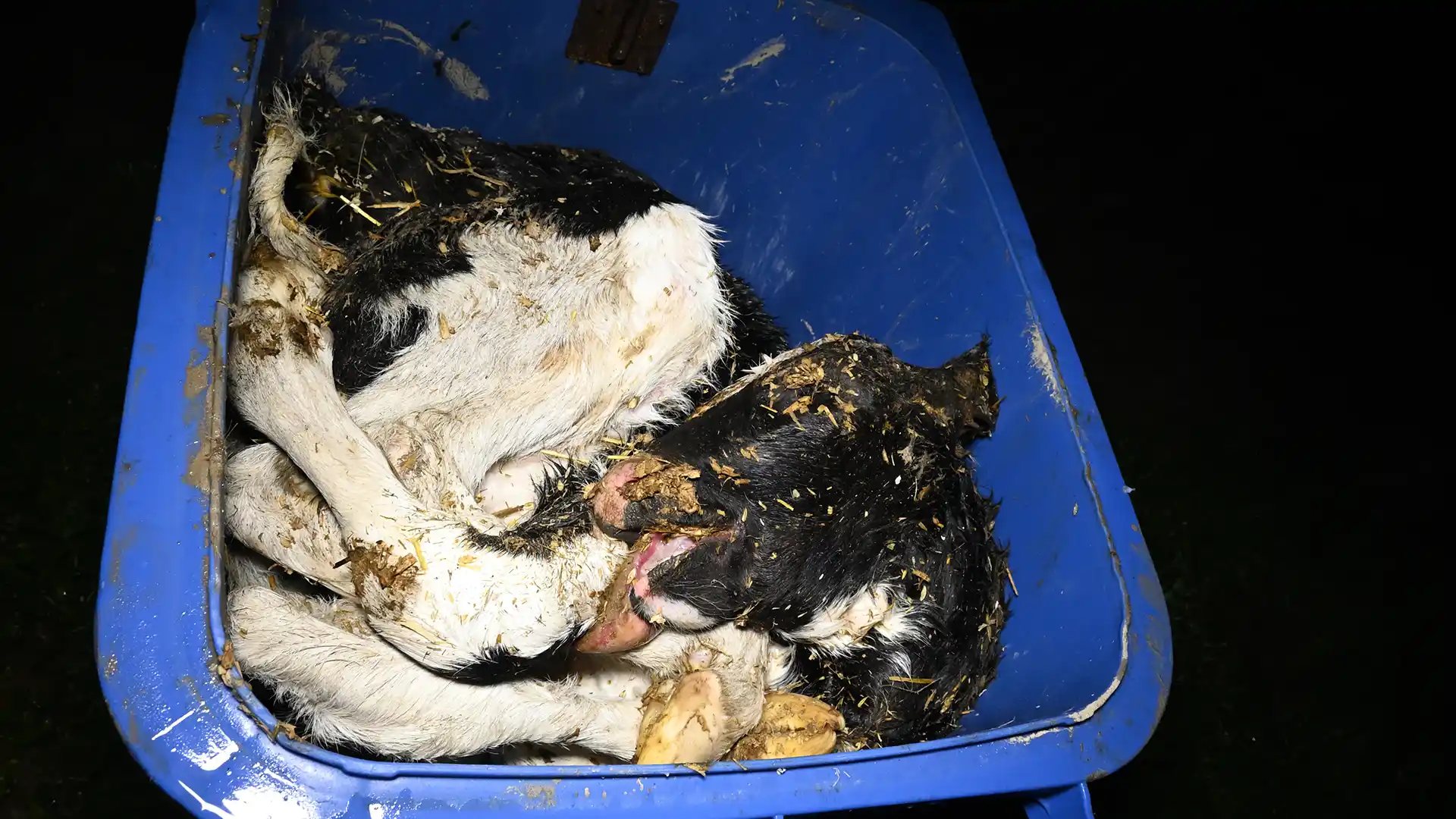The True Costa Dairy
Viva! received a tip-off from an ex-worker of Home Farm in Deal, not far from the glorious white cliffs of Dover. It is a large dairy farm which supplies the huge company, Freshways, who in turn supply many well-known national brands – including Costa Coffee.
The informant said that they’d witnessed numerous incidents of violence, with workers hitting the animals. They also said that sick cows were routinely neglected. We had to see for ourselves.
I invited one of our longest serving patrons, Wendy Turner Webster. She’d never been to a dairy farm before and wanted to help us expose the reality of milk production. But I immediately felt sorry for her as I felt I hadn’t prepared her enough for what we confronted…
We walked with trepidation along fields and a rough country path, following my nose as the dark smell of filth hit the back of my throat. Upon entering the farm, I noticed wheelie bins outside a huge industrial shed.
On lifting the lid, the first thing we saw was a crumpled dead calf. Her legs had been tied together with twine, presumably to enable a worker to drag her tiny body along the yard from where she’d been confined in a metal pen with other little ones calling out for their mums.
Looking into that bin and explaining to Wendy the fate of all babies in the dairy industry was hard. The girls replace their mums for a gruelling life of repeated pregnancies and milking. The boys are often killed as teetering babies, just days old. They are viewed by the industry as a worthless by-product as they can’t produce milk. Some are reared for cheap meat.
Next, we walked into a cavernous shed along a faeces-and urine-soaked slatted floor. The cows were all mothers who had recently given birth. They were beautiful, curious and gentle creatures – despite their towering size. Their chocolate brown eyes followed us as we talked to them. I found it heart-rending to see how being used as a milk machine takes its toll. Several cows had udders so large it distorted their ability to walk. Milk was leaking out of their teats, with their babies stolen from them and not able to drink their milk. Their spines and pelvic bones painfully protruded as their bodies started to waste. This is because for decades, dairy cows have been bred to produce unnaturally large quantities of milk. It is also because they are milked through much of their repeated nine-month pregnancies.
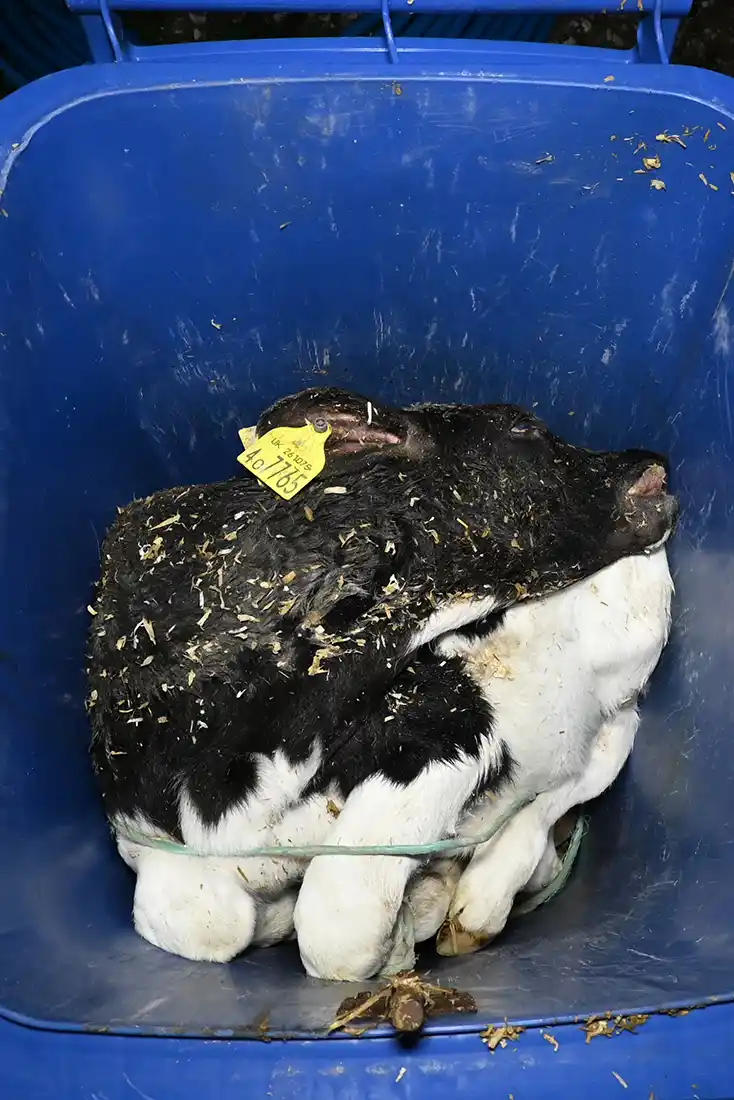
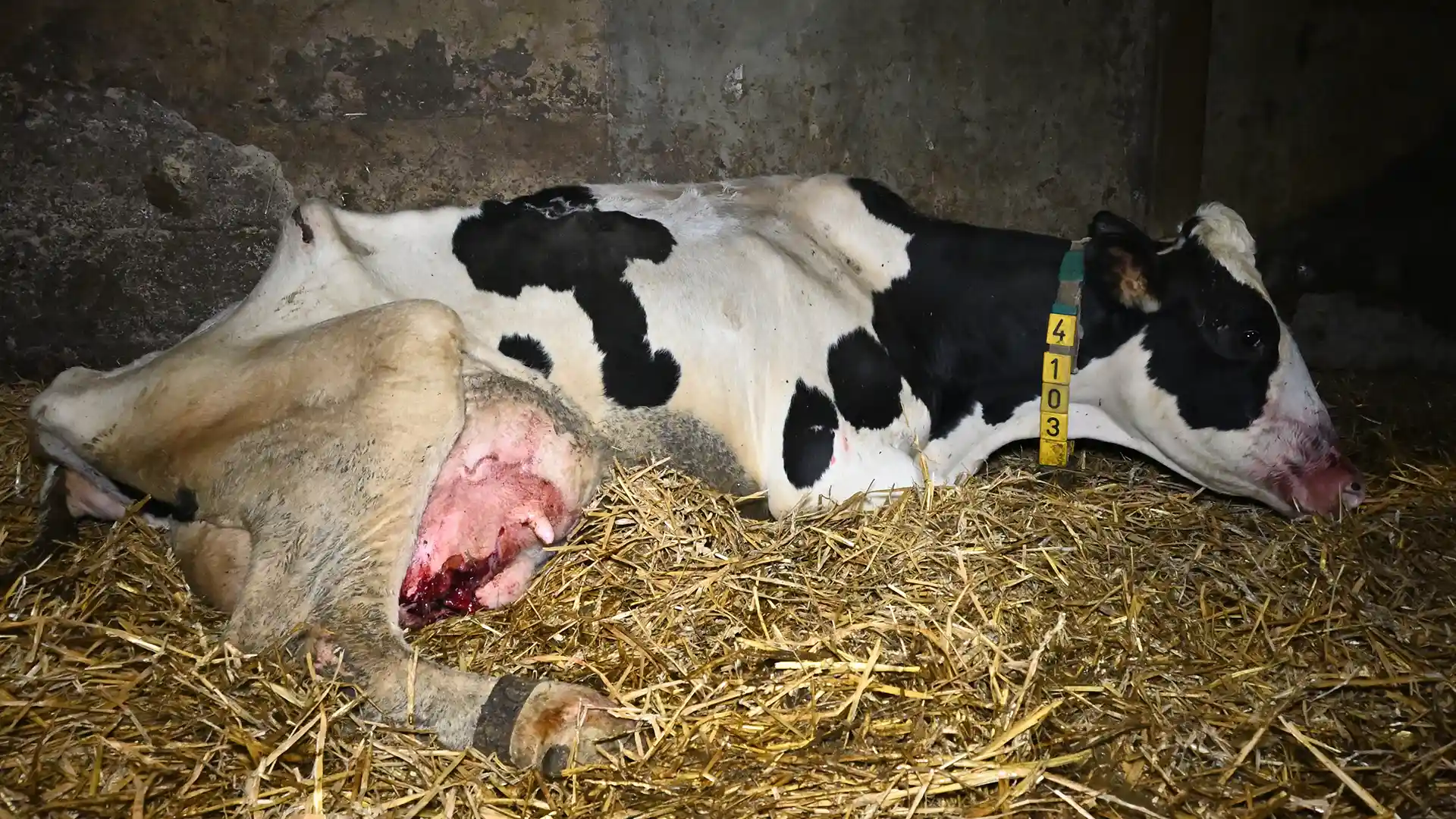
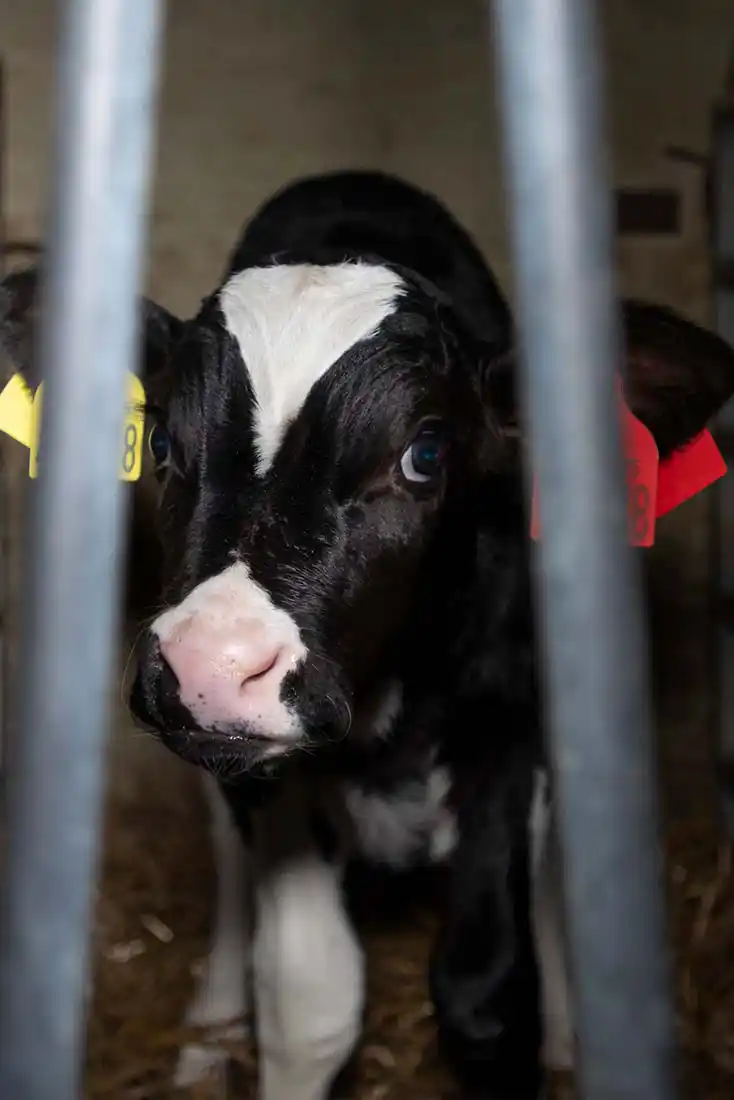
Wendy was visibly distressed but persevered with me. We moved on to look for the calves. They were in a separate part of the farm, but only about 20 feet from their bellowing mothers. One baby still had her umbilical cord attached. She was so young, she looked confused and was unsteady on her feet. She suckled so hard on our fingers, truly desperate for comfort, isolated in a small metal pen. I talked softly to her but what can you say to a tiny innocent baby who just wants her mum?
Earlier in the year, our investigations team had installed several hidden cameras on the farm. It revealed a sequence of extremely emaciated cows, their distended udders so swollen with milk it was leaking onto the filthy shed floors. Other cows had their hind legs shackled together with chains. I felt my stomach knot. These devices are called hobbles and they’re quite common in the dairy industry. They’re supposed to prevent a cow that’s already experienced some nerve damage, sometimes due to frequent calvings, from further injury by falling on the wet flooring.
In other scenes, I watched workers slap, shove and knee these abused mothers towards the milking parlour. All these majestic animals are to them is money; profits forever prioritised over welfare.
What got to me the most though was a tiny calf, snatched from her mother shortly after birth. The emotional torment this inflicts is difficult to comprehend and the sheer apathy dairy farming shows towards animal suffering is abhorrent. This baby was ill. She wasn’t feeding and the response of the farm was not to reunite her with her mother, but to force-feed her instead. One of the workers straddled her, pushing a tube down her throat.
When we investigated, Wendy and I wrenched ourselves away from comforting the baby calves and decided to check the office. However, on the way, we witnessed something unbearably sad. There, on a small patch of scruff behind the shed, mixed among scrap and debris dumped in the open, was a fully-grown mother cow. She’d been shot through the head and the blood that had oozed from her wound had dried into a congealed mess on her forehead. I very rarely cry, but her eyes said everything – a tortured mother. It was almost unbearable to see.
We made a promise to her that Viva! would do everything it can to help stop this appalling cruelty. We looked around the office and found what we were looking for – collection receipts that showed the farm is contracted to the major milk supplier Freshways, “the UK’s largest independent processing dairy”. Freshways customers include national brands such as Costa Coffee, Caffè Nero, Budgens, Iceland, Nisa, Londis and British Airways. And sadly, no surprise – the farm is Red Tractor assured!
We’d spent a long night inside this place and it was time to leave. I felt angry walking away and before I was even sat back in the car, my head was spinning with ideas about how to respond. Later, I struggled to sleep. But since then, we’ve pulled our findings together and reported the farm to the authorities for violating animal welfare regulations.
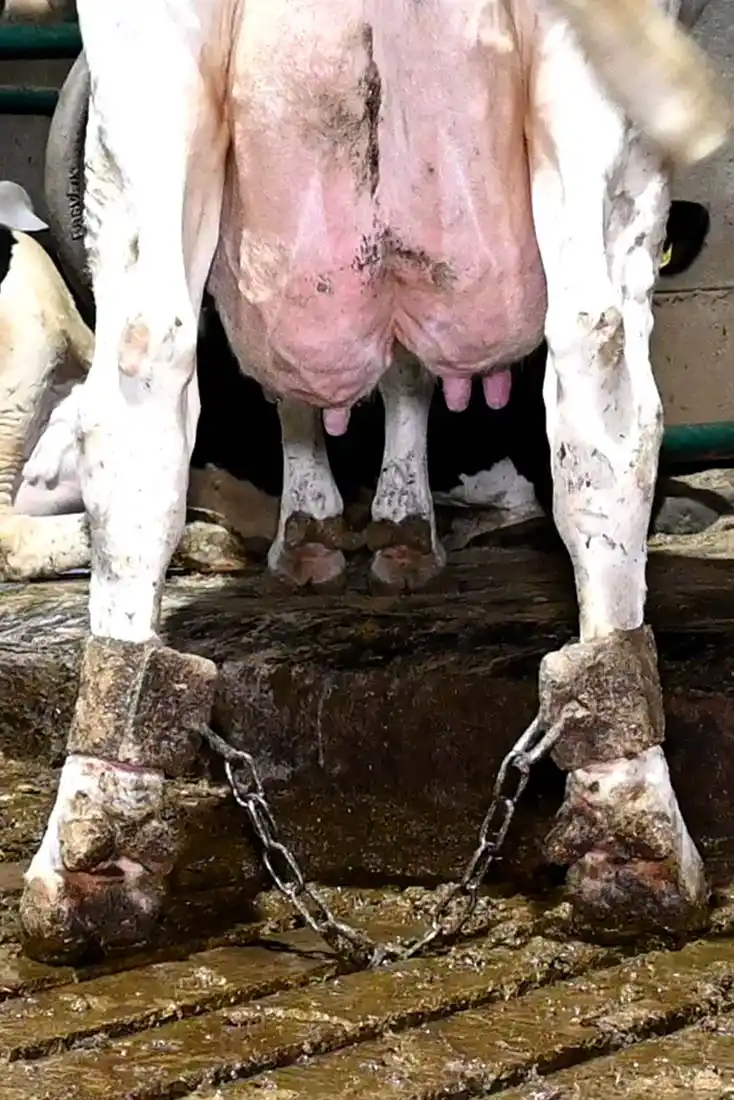

Red Tractor had the audacity to state that Home Farm “demonstrates the best of dairy farming”. Please help us show the public what “the best” entails!
We have already achieved a powerful exclusive in The Independent with the headline:
Undercover video finds cows on dairy giant farm that supplies Iceland and Costa Coffee ‘in filthy conditions’.
Exclusive: one cow ‘hit in the udder’ and others struggled to walk, footage shows.
This is now the largest quality digital news brand, reaching about 800,000 people a day.
Now, we need your help. Join with me and Wendy to pledge to help these poor animals. Let’s use the findings of our investigation to relaunch Viva!’s Scary Dairy campaign and hold Costa to account. Please donate whatever you’re able as we have more investigations and actions to bring The True Costa Dairy to the public. They just need funding.
Days of Action
In true Viva! style we’ve organised not one, but two, nationwide Days of Action outside Costa Coffee in order to urge their customers to choose plant milks instead. On 28 January, Viva! supporters joined in across the nation. Viva! received an incredible response from the general public. I’m hoping you’ll join us on our next Day of Action on Saturday 11 March to reach even more people and help them to swap to plant-based alternatives.
All you have to do is find out where events are being held or host your own outside your local Costa Coffee shop by filling out the form at viva.org.uk/costa.
Whether or not you can join the Day of Action, please do consider helping to fund the campaign by donating directly through this appeal. Any contribution, small or large, will help me and Viva! show the public what The True Costa Dairy really means. We can’t do it without you!
Yours for the animals,
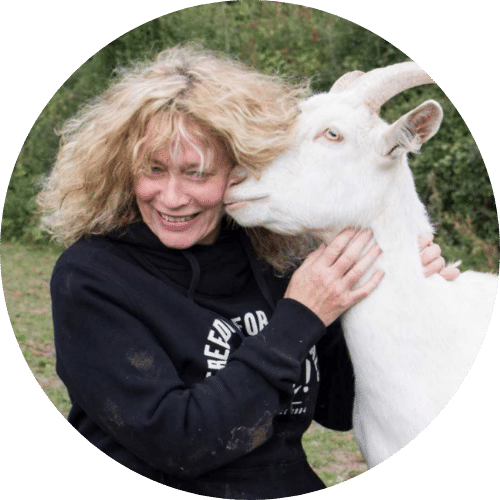
Juliet Gellatley





